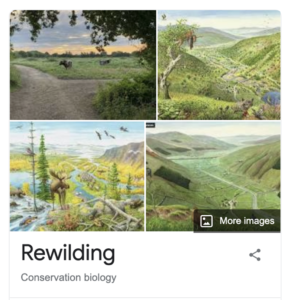News . Best Practices Lowest ability students engaged with open schooling but support is necessary for them to grasp science knowledge and develop communication skills

This best practice reports an open schooling initiative about Rewilding ESSEX! It was developed by The Thomas Lord Audley School – in Colchester. The activities were supported by Mastery Science Researchers and the Science teacher in the UK. There were approximately 90 students from 3 classes who participated in the science action about rewilding. Students were engaged to learn about the topic and help the community to make a decision about which animal rewilding.
Care: Students were involved in this activity. They were asked to show what they discussed with their family. It was possible to confirm Visible discussions seen with their family. However, there were 50% of the class who were not able to show that their families were involved. It was not possible to see any evidence of discussion for various reasons.
Know: Students interacted with a STEM professional from Colchester Zoo who supported the open schooling activity by judging the presentations
Students demonstrated their knowledge with Heated debates for how animals interact with the food web. Students got very involved in class discussions and debates throughout the 8 lessons.
Do: Students presented their rewilding projects using data and facts. Scientists evaluated the presentations and provided their comments. We could not complete the lessons in 8 lessons due to lack of background knowledge and had to reinforce the basics (eg. food chains before food webs).
Therefore, we could not complete the beaver lesson due to time constraints on the SOW. However, students seemed to be okay with final presentations and were happy with research, analysis and presenting.
Findings: This open schooling project worked very well. No issues with completing specific activities. All activities are easy to follow and carry out.
The biggest issue was how to differentiate effectively to the very low ability students. All other students had no issues with the knowledge they were acquiring. However, lowest ability students were not even able to grasp food chains and use the key words. Personally, I was able to differentiate for these pupils by providing alternative worksheets I had made.
Most resources met our needs.
However – not enough resources for low ability students. This is fine though as teachers can source these depending on the group.
Outcomes: High degree of student involvement. The whole class really enjoyed it. Very engaging, promoted discussion and lots of questions. Great for motivation and exctement about science.
The final task of a Presentation would have taken several lessons to complete, which we didn’t have so instead they made a persuasive poster to display on the science noticeboard.
Students:
- Developed the skill of research, analysing data and presenting skills.
- Developed social skills with use of group work.
- Developed critical thinking skills from the evaluation and voting – including the skill of justification.
All students in class were motivated to complete work and engaged. No issue with motivation.